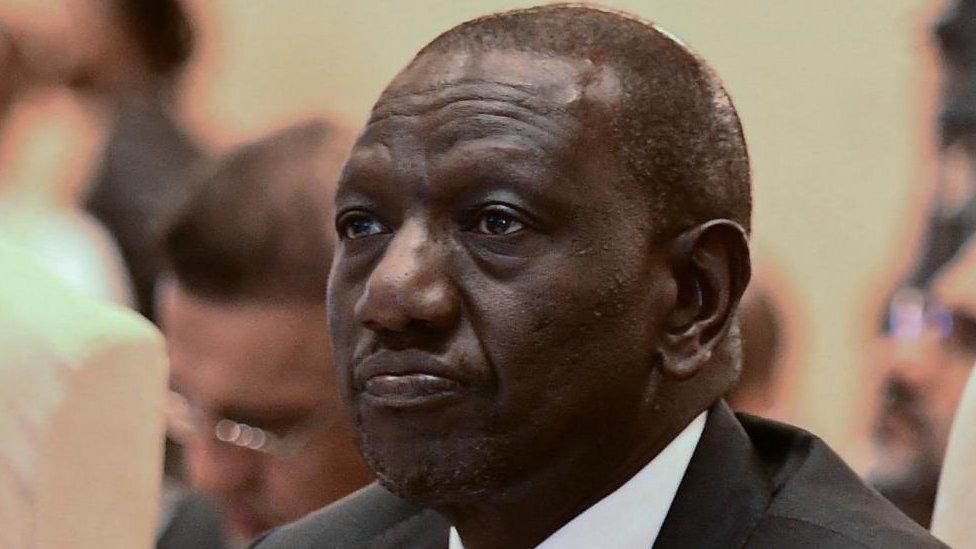Kenya housing levy: Blow to William Ruto as court blocks tax
- Published

This and other cases have sparked a rift between the president and the judiciary
A Kenyan court has dealt a blow to the government, rejecting its appeal against a temporary block on a controversial housing tax.
In November, the High Court found that the 1.5% monthly levy unfairly targeted Kenyans working in the formal sector and ordered payments to halt.
On Friday, the Court of Appeal ruled that citizens should stop paying the tax until the case is decided.
The government had wanted to carry on collecting the tax in the meantime.
President Ruto has vowed to press ahead with the project regardless, claiming to have public support that was tantamount to an endorsement from God.
"Your say is God's say. So I have enough directive and I will push this housing programme forward," he told people at a public rally in Meru County, central Kenya, on Friday.
Kenya's government had begun deducting 1.5% of the gross salaries of locals and foreigners last July, to fund construction of affordable houses for low-income earners.
The levy sparked an outcry from the opposition and a large section of Kenyans, who feel burdened by the raft of taxes introduced under President William Ruto.
The government had argued that suspending the levy would render thousands of workers under the housing programme jobless and breach contracts that had already been signed.
Many Kenyans are relieved by the judgement, although the Court of Appeal is yet to make its final decision.
The ruling comes a week after the appeals court gave the go-ahead for a controversial healthcare insurance levy, which will require people to contribute 2.75% of their monthly salaries to a social healthcare programme.
The housing levy case is one of the petitions that have created a rift between the judiciary and executive, with President Ruto accusing allegedly corrupt judges of colluding with the opposition to sabotage national development projects.
Friday's ruling was one of two on the same day to go against the government. The High Court also ruled that Kenya could not send police officers to Haiti, to tackle gang violence there.